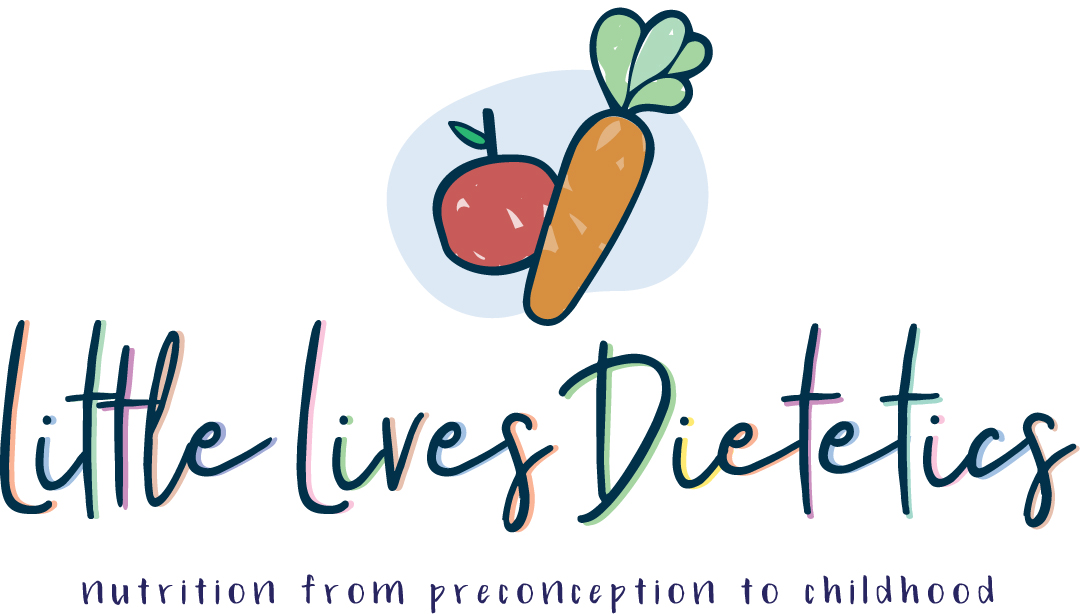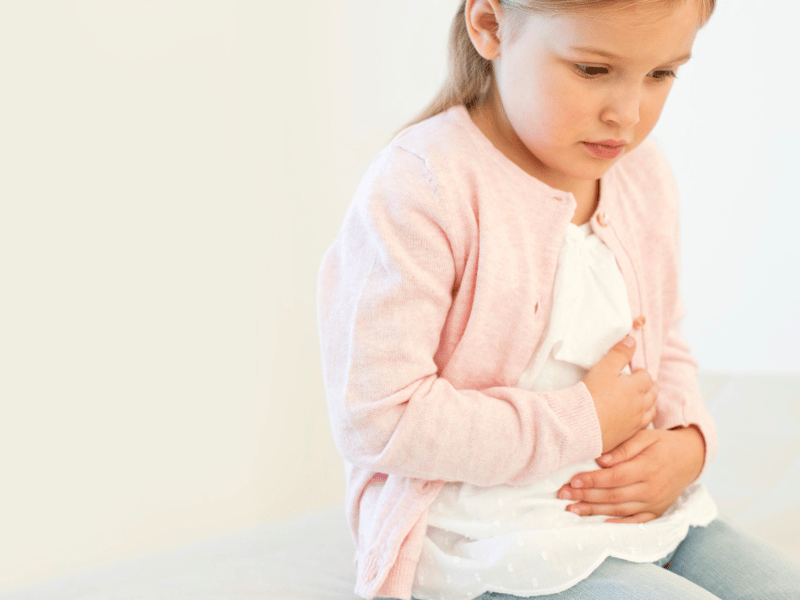
How to manage your child’s constipation
Is your child struggling with constipation? If yes, it often can be very distressing for both your child and yourself. However what we do know is that constipation is very common affecting up to 30% of children and often arising around the time of transitioning to solids, toilet training and school entry (1,2).
In children it is estimated that 95% of cases of constipation are functional, that is there is no medical cause (3). However it should be noted that constipation presenting before 6 months of age, and particularly before 3 months of age does have a higher chance of being related to an underlying medical cause.
The main contributing factor for children developing functional constipation is behavioural withholding after a painful or unpleasant stool event. This unfortunately causes the stool to build up within the colon and rectum leading to fluid reabsorption and harder, larger and more painful stools to pass. Overtime the colon and rectum stretch which leads to a reduced sensation of ‘needing to go’ and involuntary soiling.
How is constipation diagnosed?
Whilst we often think as constipation as not opening bowels, the actually diagnosis is more complex. Based on the Rome IV criteria functional constipation is diagnosed by the presence of two or more of the following features at least once per week for minimum one month:
- Two or fewer stools per week
- Excessive stool retention
- History of painful or hard bowel movements
- Presence of large faecal mass in rectum
- History of large diameter bulky stools that may obstruct the toilet
- At least 1 episode of faecal incontinence per week after toilet training completed (4)
What medical treatment is required for constipation?
If your child has not seen their paediatrician or GP I would highly recommended booking an appointment, especially if they have been suffering with constipation for over a month and are meeting the above criteria. Often the first step in treatment for children with chronic constipation will be disimpaction, which is the removal of the build-up of stool in the colon. This is most commonly completed with the use of oral laxatives.
What dietary and lifestyle factors can assist in the management of constipation?
Encourage positive toileting behaviours
Improving your child’s toilet routine is essential for successful long-term management. Encourage your child to sit on the toilet for up to 5 minutes after meals. This is when their gastrocolic reflex which controls the motility of their colon and the urge to go is most active. Praise your child for sitting on the toilet and ensure toileting remains a positive experience. It is also important to check your child’s toilet positioning. To set up the ideal poop position use a foot stool to raise your child’s knees higher than their hips, get them to lean forward and rest their elbows on their knees, then get them to relax and bulge out their stomach and straighten their spine.
Appropriate fluid intake
Ensuring a good fluid intake will help to ensure stools remain soft and easier to pass. As a general guide children under 8 need around 1-1.2L/day, whilst older children 1.4-1.9L/day. To help meet these requirements offer water with meals and snacks and invest in a cool drink bottle they can take to day-care, preschool or school.
Adequate fibre intake
Inadequate fibre in your child’s diet can exacerbate constipation. To help ensure adequate fibre intake focus on including fibre rich foods such as wholegrains, fruits, vegetables, legumes, nuts (avoid whole nuts under 5 years of age) and seeds. If you are adding more fibre into your child’s diet it is important to do this gradually and ensure adequate fluids as otherwise it may potentially cause tummy discomfort and exacerbate constipation.
Provide sorbitol rich fruits
Sorbitol is a short chain carbohydrate (sugar) which is poorly absorbed in our gut. When sorbitol is malabsorbed it causes water to be drawn into the gut. This helps to soften stools making them easier to pass. Sorbitol is found in various fruits including apples, pears, prunes and stone fruits such as nectarines, peaches, plums and apricots.
Include kiwi fruit
Studies have shown kiwi fruit to be helpful for relieving constipation. Kiwi fruit is not only rich in fibre but it contains an enzyme actinidin which is thought to increase motility in the colon and laxation.
Focus on daily movement
Incorporating daily movement helps to support digestion and keep bowels moving. Focus on activities your child enjoys. For baby’s a gentle tummy massage and moving their legs in a cycling motion can also be helpful.
If you are struggling to relieve your child’s constipation and would like a personalised plan so they can find relieve click HERE to book an appointment.
References:
- Waterham, M, Kaufman, J & Gibb, S. Childhood constipation. Australian Journal of General Practitioners 2017; 46 (12): 908-912.
- Nurko, S & Zimmermann, L. Evaluation and treatment of constipation in children and adolescents. American Family Physician 2014; 90 (2): 82-90.
- Levy, E, Lemmens, R, Vandenplas, Y & Devrekeret. Functional constipation in children: challenges and solutions. Paediatric Health, Medicine and Therapeutics 2017; 8: 19-27.
- Hymas, J, Lorenzo, C, Saps, M, Shulman, R, Staiano, A & Tilburg, M. Childhood functional gastrointestinal disorders: Child/adolescent. Gastroenterology 2016; 150: 1456-1468




